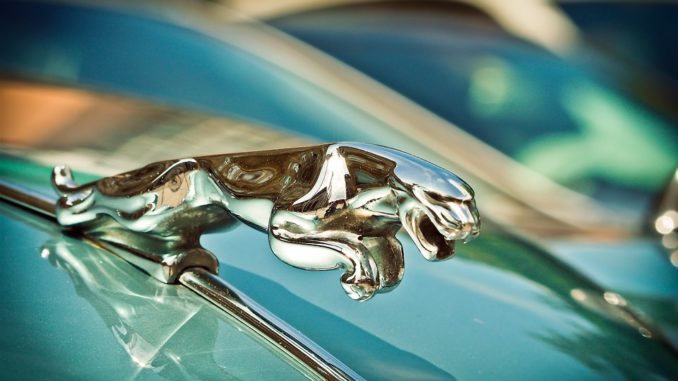
The idea of having lots of luxury goods is appealing to most people, but how much of a meaningful difference does having a nice car, big house or a new item of clothing make to our wellbeing?
CREDIT: This is an edited version of an article which originally appeared on What Works Wellbeing
Social status and ‘positional’ goods
Ruut Veenhoven, of Erasmus University, Netherlands, says that we have an innate need for higher social status. The alternative – low status – is, typically, accompanied with bad outcomes, such as a shorter life span. Buying luxury goods is one of the ways we gain social prestige and self-respect.
Consequently, research shows, typically, a positive correlation with happiness – at least in the period soon after we buy a new car. Imagine driving your luxury convertible along a romantic coastline on a warm summer’s day… Ronnie Schöb, of Frei Universitat, Berlin, says that idea of this is certainly more rewarding than imagining doing it in your standard car!
Luxury cars are a positional good, as defined by Robert Frank; buying them offers a social status advantage relative to others, which raises the subjective wellbeing of the buyer. However, others may experience a fall in their status relative to the buyer, which is likely to lower their wellbeing at least as much as the wellbeing of the buyer rises due to her increase in status.
Social status is a relative concept – luxury goods improve the status of those who have them, but worsen the status of those who don’t, says Andreas Knabe, Otto Von Guericke University, Germany.
Our happiness adopts to our new ‘normal’
Maarten Vendrik, of Maastricht University School of Business and Economics, Netherlands – notes that the increase in happiness for the owner of a new luxury good is transitory. While the wellbeing of the buyer may rise because she likes luxury cars intrinsically, this gain disappears in the long run due to hedonic adaptation. Over time we adapt and take things for granted.
Ada Ferrer-i-Carbonnell, Institute for Economic Analysis, Barcelona, agrees, saying that the positive effect for the consumer of the status good might be only short-lived if many others start consuming it; Anke Plagnol, City, University of London, calls this a consumption ‘rat race’ to ‘keep up with the Joneses’.
Paul Frijters, London School of Economics, gives an example of the ‘Joneses effect’ using research on the status effect of luxury cars. The study uses the happenstance that the Dutch postcode lottery randomly gives a luxury car to an individual in a postcode every month or so. The authors were able to track, over time, how the recipient’s neighbours reacted, finding that, on average, it increased the number of new cars that neighbours bought, to ‘keep up with the Joneses’.
While this extra consumption of luxury goods has a positive side – the cars and washing machines that were once considered status goods become more valuable products, not to mention the jobs the production creates – the ‘consumption arms race’ of materialism triggers pollution and environmental degradation, including climate change, and the net wellbeing effect of status goods may, indeed, be negative.
Intrinsic and extrinsic motivation: why it matters
Materialism, the relative importance attached to extrinsic versus intrinsic life goals, has been consistently linked to lower wellbeing in several domains of life. Wenceslao Unanue, Universidad Adolfo Ibáñez, Chile, says that, if the consumption of a status good is due to the search of extrinsic rewards – which is very likely – the effect on wellbeing will be negative. Bruno Frey, of the University of Basel, says that luxury goods are more strongly subject to decreasing marginal happiness than more normal goods, like your favourite pasta.
Benjamin Radcliff, University of Notre Dame, explains that anyone with the disposable income to purchase status goods has very likely already exceeded the point where the curve connecting consumption to happiness has become nearly flat – more material possessions will not help; in other words, upper-middle class people buying more ‘toys’ of any kind will not provide more happiness.
Culture, happiness and luxury goods
In comparing the motivations and consequences of luxury consumption in western and southeast Asian cultures, Wong and Ahuvia (1998) conclude that, because the Asian inter-dependent self focuses more on the public, outer self than the western, independent self, Asian group norms and goals frequently emphasise public and visible possessions.
Economic status is a central social concern in these hierarchical and newly industrialised societies and, as a result, publicly visible markers are needed to communicate financial achievement in a concrete way. Therefore, southeast Asians pay a great deal of attention to possessions that are both public and visible, such as designer-labelled goods, expensive cars, jewellery, and so on.
However, this apparent materialism may or may not reflect internal personal tastes, traits or goals. Instead it may reflect the value that an interdependent self places on social conformity in a materially-focused, family-oriented and hierarchical culture.
Overall, it is likely that, at least in the longer run, the net wellbeing effect of the consumption of status goods, like luxury cars, on the total wellbeing of the consumers of status goods and the people in their social environment jointly is close to zero. Mariano Rojas, Universidad Popular Autónoma del Estado de Puebla, México, says that this means that their positive impact on people’s wellbeing lasts as long as they are exclusive goods.
Furthermore, they may have an additional negative impact on the wellbeing of non-owners by raising their aspirations. Martin Binder, of Bard College, Berlin, summarises the majority view by stating that wellbeing gains are temporary, and one-upmanship will erode any pleasure gained.
However, maybe you are like the 23% of the experts who disagreed – every time you see that Lamborghini drive by, you enviously want one.
Don’t forget to follow us on Twitter, like us on Facebook, or connect with us on LinkedIn!


Be the first to comment